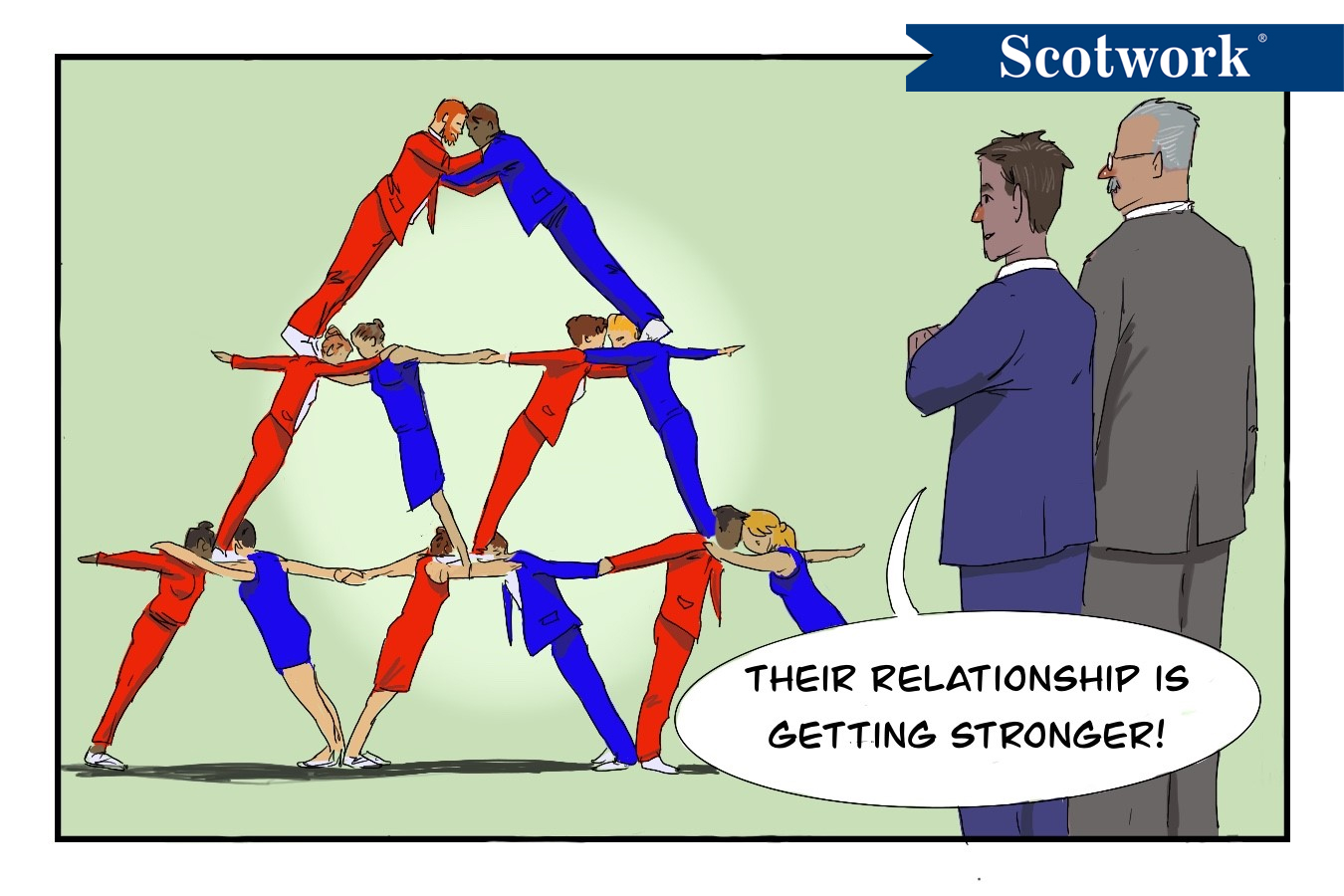Our clients work with us because we can help them get better deals, complete negotiations more efficiently, achieve more consistent results, and improve relationships. You read that right: improve relationships. How you conduct your negotiation can absolutely improve your relationship with the other party. And who doesn’t want better relationships with clients, vendors, coworkers, spouses, significant others, friends, and all those who we negotiate with?
When I talk with groups about negotiations, I hear all kinds of stories about scarring conversations they’ve been part of, including people yelling at each other and situations where someone is coercive and manipulative. In my experience, most people who behave poorly do so because they know no other way. Let me tell you: It doesn’t have to be that way.
First, skilled negotiators use advanced communication methods to share and discover information. They’re active, inquisitive listeners. They’re interested in what the other party says — understanding their priorities, motivations, and feelings, all of which are building blocks for truly learning about somebody.
They also know how to express themselves and share information effectively. They recognize that in order to get the other party to share, they, too, must share information. This mutual sharing and understanding helps build trust.
Trust is the foundation of any collaborative negotiation. With trust, both parties tend to take into consideration the other’s opinions, points of view, and — even more importantly — issues. When this happens, proposals tend to be more balanced, credible, and realistic. These proposals anchor negotiations and give both parties something to build from.
Trust also facilitates constructive ways of resolving differences or solving problems when they arise during the negotiation. When you can effectively address these impasses, you can avoid regret or resentment that can undermine a relationship.
With trust and collaboration, both sides develop a shared sense of ownership of the negotiation. They take responsibility for its direction, tone, and outcome. Even though each party has its own agenda and issues, both sides of the table will work together to ensure that all issues are addressed.
Through this process, parties develop greater respect for each other. The other side becomes less of an adversary and more of a trusted partner. Generally speaking, greater respect leads to less coercion, manipulation, and gamesmanship. The players tend to be more straightforward and aboveboard.
For skilled negotiators, the greatest benefit to building relationships is how it sets precedent. Every time we negotiate, we train the other party how to work with us. If they’re used to us yelling and screaming, then they’ll adjust accordingly. If they’re used to us collaborating and listening, then they’ll also adjust accordingly. We attract what we put out there. And every skilled negotiator we talk to will tell you that while some people show up at the table like a nightmare, they can be trained to be a dream just by how we choose to show up at the table.
In the end, when done well, negotiations will improve communication, trust, collaboration, and respect — all key ingredients to better relationships.
We Can Help You Use Negotiations to Improve Relationships.
Is your team improving communication, trust, collaboration, and respect through their negotiations? Draw on Scotwork’s nearly 50 years of real-world negotiating experience to get better deals, save time, and create value that preserves and strengthens relationships. Partner with one of our advisers to ensure you have the optimum view of your deal.

